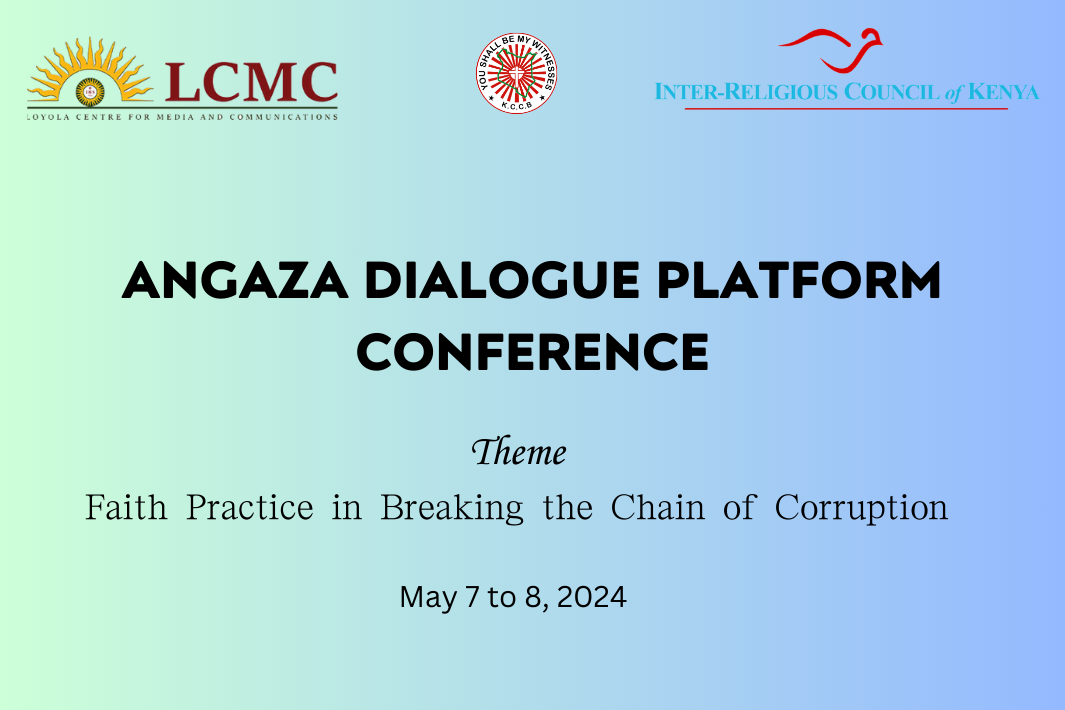By Paschal Norbert
NAIROBI, APRIL 19, 2024 (CISA) – The Loyola Centre for Media and Communications (LCMC) in collaboration with the Kenya Conference of Catholic Bishops- Catholic Justice and Peace Department (KCCB-CJPD) and the Inter-Religious Council of Kenya (IRCK) have organized a conference to explore faith-based approaches in the fight against corruption in Kenya.
Under the theme “Faith Practice in Breaking the Chain of Corruption,” the conference is scheduled to take place from May 7 to 8, 2024, at the Hekima Institute of Peace Studies and International Relations (HIPSIR), Nairobi, Kenya.
Leveraging on historical facts that have shown numerous instances, where faith has served as a powerful motivator for individuals and movements committed to addressing social injustices such as corruption, the two-day conference will examine the intersection between conscience and law and highlight ways in which faith-inspired actions through personal commitment can shape both policy and programmatic solutions in the fight against corruption.
“This conference explores the dynamic interplay between faith-driven commitment to social justice and governmental accountability and responsiveness to the citizenry. In other words, the conference will discuss the intersection between conscience and the rule of law in breaking the chains of corruption in Kenya. Faith in God, when harnessed as a catalyst for social justice, can significantly strengthen public policy and governance,” says Dr Elias Mokua SJ, Executive Director of LCMC and convener of the conference.
“The output from the conference will be used to intensify spiritually-driven anti-corruption dialogues to speak to the hearts of Kenyans,” he adds.
Corruption is pervasive in Kenyan society and a serious challenge across all sectors of the economy. It is viewed as an issue of moral failure, the remedy being the moral transformation of the people. With this reality, the conference will also explore areas of partnership between government and faith-based communities as civil institutions equipped to tackle contemporary social and moral challenges.
“There are encouraging examples where governments have integrated faith-based actions into their social policies to better align with the aspirations and needs of their populations. In the Kenyan context, the intricate relationship between personal commitment to faith-driven social justice and governmental responsiveness is constitutionally enshrined and culturally ingrained. The Constitution guarantees freedom of worship and mandates public participation. Specifically, the conference will focus on this intersection’s potential to combat corruption and how faith-inspired actions can prompt more effective government action against corruption,” noted Dr Mokua, a member of the Society of Jesus (Jesuits).
The conference is open to religious leaders, civil society organizations, international partners, members of parliament and senators.
